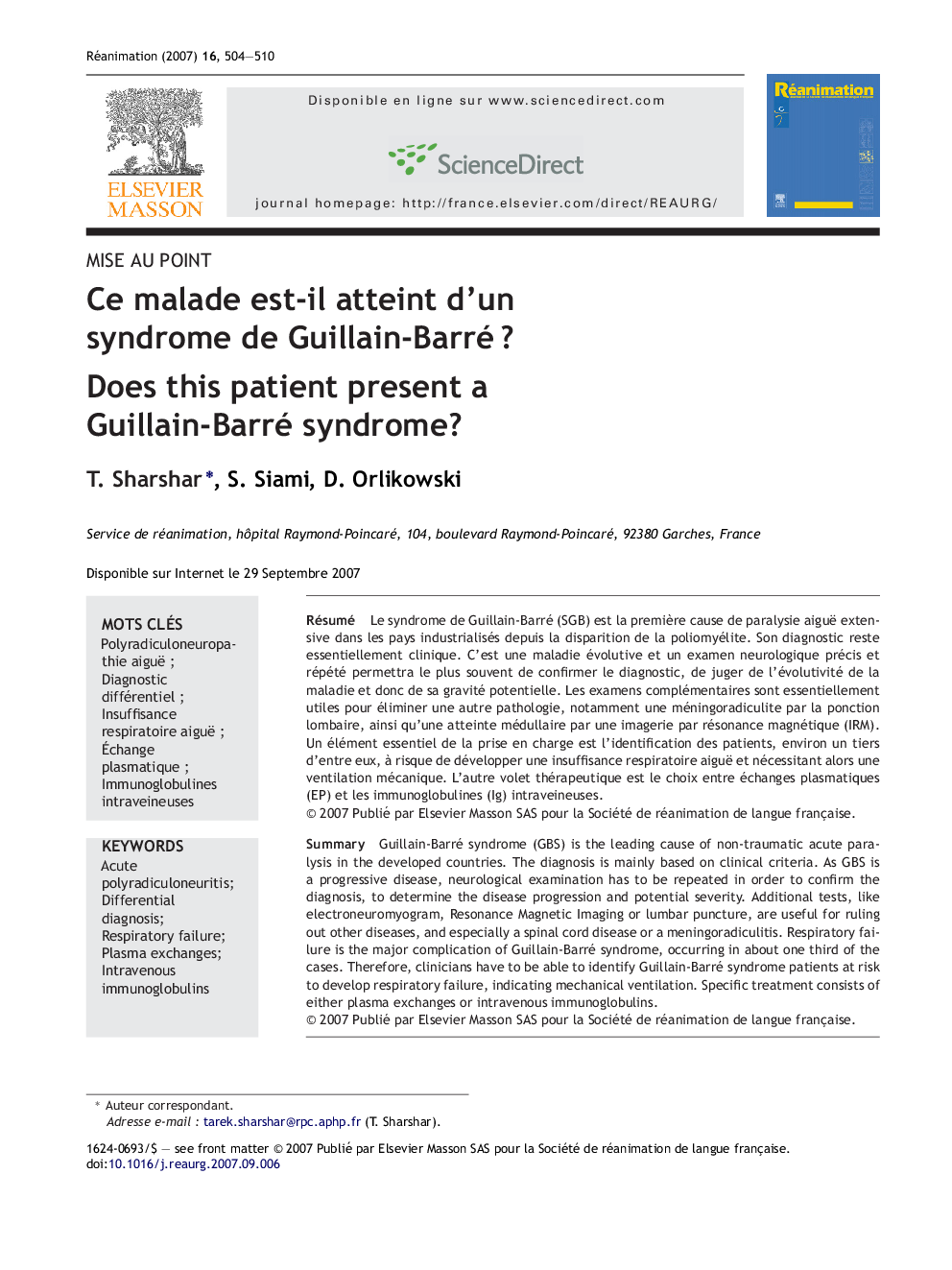| Article ID | Journal | Published Year | Pages | File Type |
|---|---|---|---|---|
| 2612275 | Réanimation | 2007 | 7 Pages |
Abstract
Guillain-Barré syndrome (GBS) is the leading cause of non-traumatic acute paralysis in the developed countries. The diagnosis is mainly based on clinical criteria. As GBS is a progressive disease, neurological examination has to be repeated in order to confirm the diagnosis, to determine the disease progression and potential severity. Additional tests, like electroneuromyogram, Resonance Magnetic Imaging or lumbar puncture, are useful for ruling out other diseases, and especially a spinal cord disease or a meningoradiculitis. Respiratory failure is the major complication of Guillain-Barré syndrome, occurring in about one third of the cases. Therefore, clinicians have to be able to identify Guillain-Barré syndrome patients at risk to develop respiratory failure, indicating mechanical ventilation. Specific treatment consists of either plasma exchanges or intravenous immunoglobulins.
Keywords
Related Topics
Health Sciences
Medicine and Dentistry
Emergency Medicine
Authors
T. Sharshar, S. Siami, D. Orlikowski,
